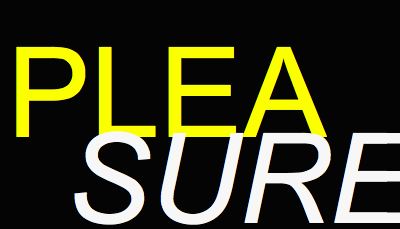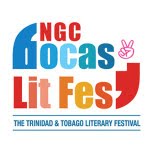 |
| US poets Rowan Ricardo Phillips and Dwayne Betts. Photo: Marlon James/Bocas Lit Fest |
DWAYNE Betts has told the story before.
When he was just 16-years old, Betts was jailed for a gun crime. Inside, he found freedom from an unexpected source.
“I was in solitary confinement,” Betts recalls, speaking at the NGC Bocas Lit Fest on April 30. “You could call out for a book and someone would slide one to you. Frequently, you would not know who gave it to you. Somebody slid The Black Poets edited by Dudley Randall. In that book I read Robert Hayden for the first time, Sonia Sanchez, Lucille Clifton. I saw the poet as not just utilitarian but as serving art. In a poem you can give somebody a whole world. Before that, I had thought of being a writer, writing mostly essays and maybe, one day, a novel. But at that moment I decided to become a poet.”
The poet – who read at the festival alongside fellow American poet Rowan Ricardo Phillips – also conducted a poetry workshop at the Port-of-Spain Prison on April 29. The experience changed everything.
“The first thing that hit me was that there was just a bunch of people in jail on remand who had not had an opportunity to see a judge; to have a trial,” Betts tells the literary audience gathered at the Old Fire Station on Abercromby Street, a few blocks away from the penal facility at the heart of the capital. “I went into the jail and I was struggling to reconcile the profound injustice and the profound pain that happens, that permeates an entire community that does not get acknowledged at all.” In his workshop, prisoners were asked to write.
“The poems these guys wrote had this same pain and frustration,” Betts says. “In the US, most of the prisons are built way out where you can’t see. One of the things that also struck me is they are right here and still seemingly invisible.”
Betts, whose poetry chronicles some of his own experiences with the US justice system, says the workshop changed him.
“What does it mean for me to be in that space and talk to them? I hope that something I said made some sense,” Betts says. “You kind of forget what it means to have certain kinds of privilege, some kind of access to justice. If you come from the States and you are interested in criminal justice reform issues you get this very narrow view of what justice should look like and you take for granted that the system works extremely well– both to lock you up and to give you some semblance of opportunity for justice formally.” He adds, “What I walk away with in terms of what they gave me is a challenge, both in terms of my writing and in my living.”
Betts is the author of the poetry books Bastards of the Reagan Era (described by the New York Times as “fierce, lyrical and unsparing”) and Shahid Reads His Own Palm, winner of the Beatrice Hawley Award. He is also the author of an excellent memoir, A Question of Freedom, which chronicles his experience of the US justice system. In prison, he was re-Christened Shahid.
“It means witness,” Betts says.
At the event – which was supported by the US Embassy – Betts read poetry alongside Phillips, author of acclaimed collections The Ground and Heaven, which was in April shortlisted for one of the world’s biggest poetry awards, Canada’s Griffin Poetry Prize. Heaven was named one of the best books of the year by The Washington Post.
“The role of the poet is to write good poetry, period,” Phillips says. “But if you do other things, you do other things. If the poet is a politician, be a good politician. If the poet is a parent, be a good parent. The poets of the future will decide what good poetry is.” For him, craft is key, particularly form and sound.
“You live by the syllable,” Phillips says. He warns against labelling. “We are always related to some kind of event that has already happened. I don’t want to be related to anything. I don’t have to think that I’m related to Dante or Langston Hughes. I’m not responding to Wallace Stevens. The role of the poet is to write good poetry and to find good poetry.” For him, understanding the world is a constant process of re-evaluation.
“I grew up in New York,” Phillips says. “Completely by accident I grew up in an Antiguan household. When they hear or read my name, people don’t know if I am male or female. People don’t know where I’m from. So in a way you are always translated. We are always constantly translating. The classical stuff has always been important, including myth. To me it’s how you understand the world through storytelling.”
- From Newsday, May 31st, 2016



















